A Taste of the Old West: What Real Cowboys Ate Every Day
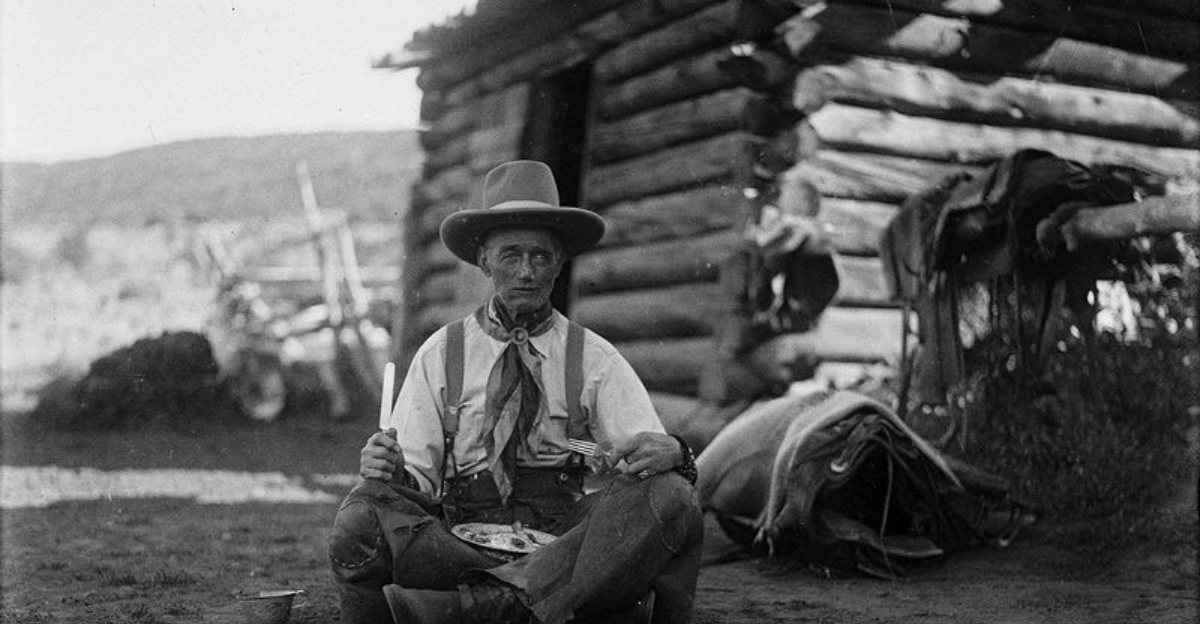
Forget the Hollywood campfire feasts—real cowboys on the trail weren’t dining in luxury. Life in the Old West was rugged, and so was the food. Meals had to be portable, simple, calorie-dense, and easy to cook over an open flame. While chuckwagon cooks did their best to keep the cowhands fed, variety wasn’t always on the menu. Here’s what the real deal looked like when it came to cowboy cuisine.
1. Beans (and More Beans)
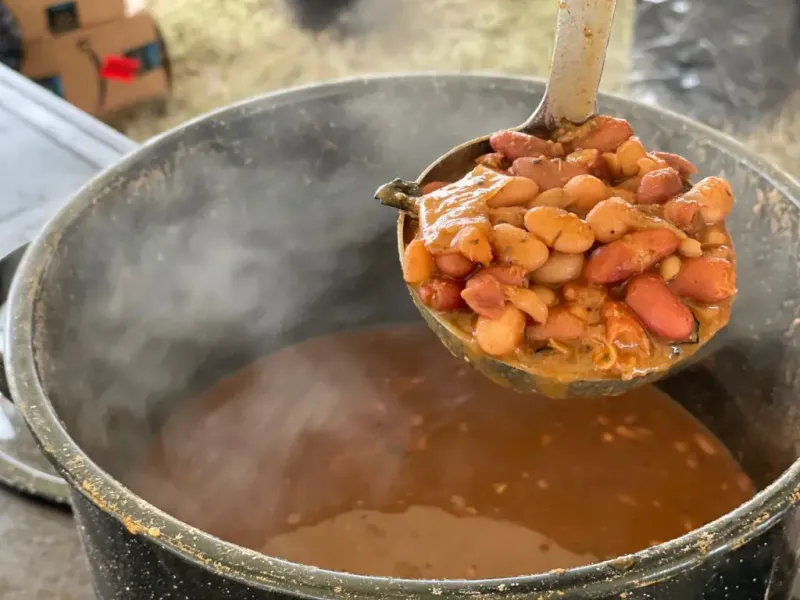
Beans were the backbone of cowboy sustenance, a reliable staple when journeying across the vast plains. Pinto or navy beans were favored for their affordability and filling nature. Slow-cooked in a cast iron pot, these beans absorbed flavors of salt pork or bacon, creating a hearty meal.
The aroma of simmering beans became synonymous with a cowboy’s respite after a long day’s ride. Versatile and satisfying, beans were more than just food; they were a symbol of the resourcefulness and endurance required on the trail.
Cooked in large batches, they ensured every cowboy ate his fill, night after night.
2. Sourdough Bread or Biscuits
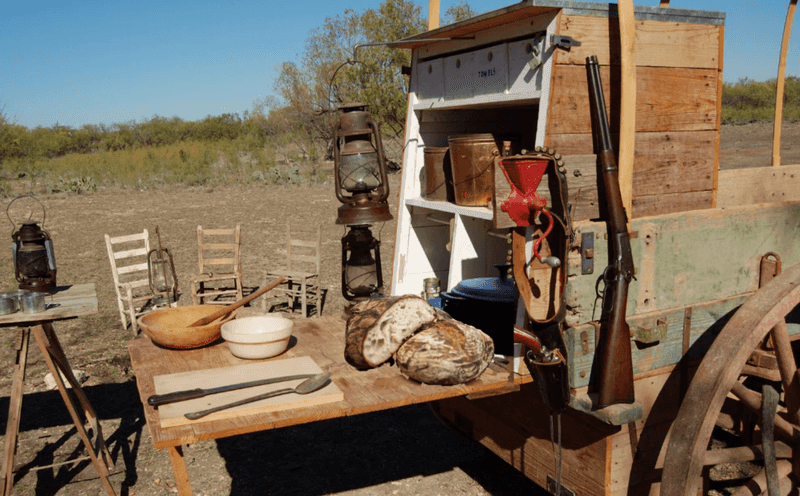
Sourdough bread or biscuits were a cowboy’s beloved carbohydrate fix. Crafted without yeast, these breads held a special place, thanks to the cherished sourdough starter. Kept alive in a jar by the chuckwagon cook, sourdough offered a tangy taste and fluffy texture.
Baked in heavy Dutch ovens over open flames, these biscuits were a daily treat, breaking the monotony of trail food. Cowboys often found comfort in the familiar, warm scent of baking bread wafting through the camp. Sourdough was more than a meal—it was a piece of home on the rugged frontier.
3. Salt Pork or Bacon
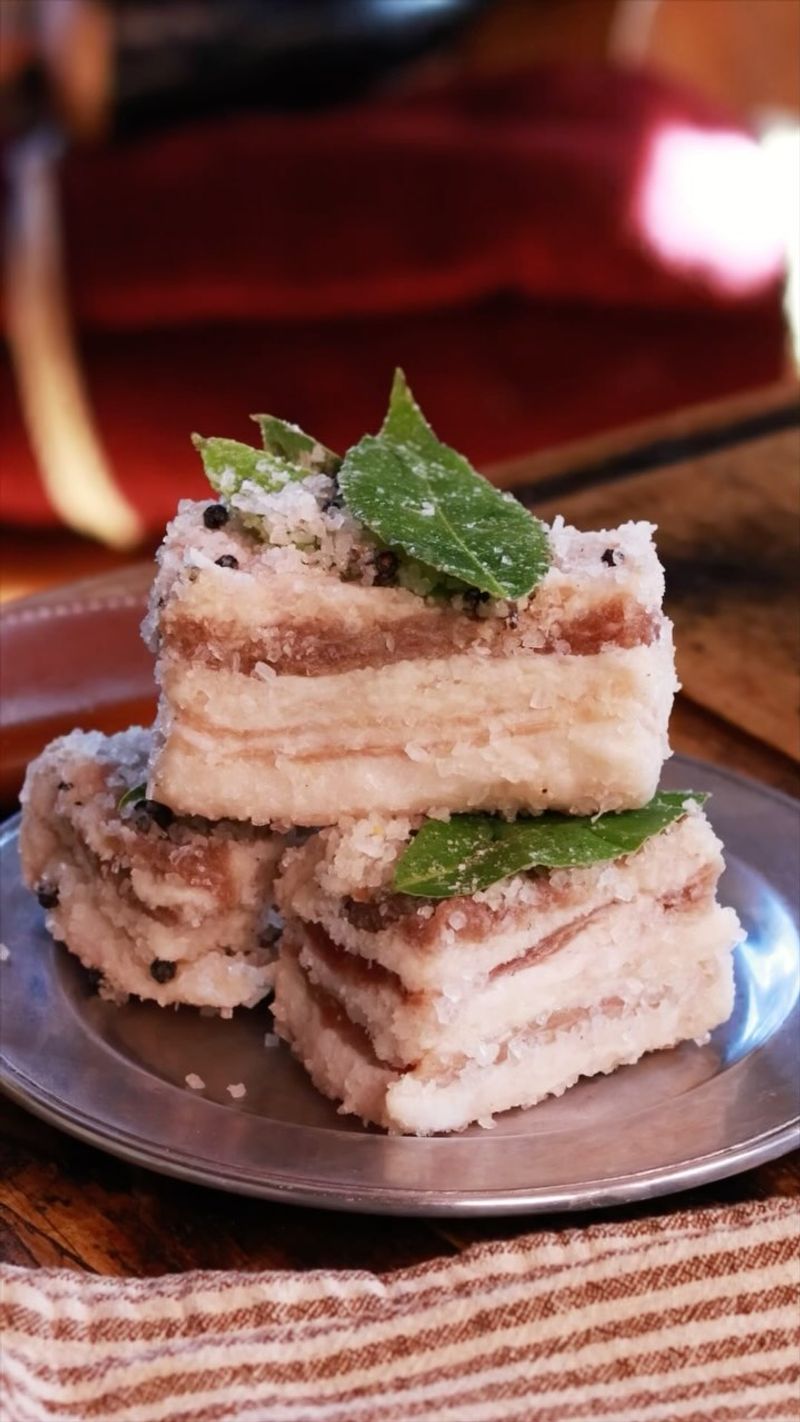
Salt pork, a cowboy’s main protein source, was a culinary staple that brought flavor and sustenance. Its ability to preserve well without refrigeration made it an ideal choice for long journeys across the plains.
Sizzling over campfires, salt pork added a deliciously salty and fatty richness to any meal, whether paired with beans or crumbled over cornbread. Bacon, too, was highly prized for its flavor-enhancing properties.
For cowboys, these meats were more than just nourishment; they were a reminder of the simple pleasures in a world where survival often hinged on what was stored in the chuckwagon.
4. Jerky
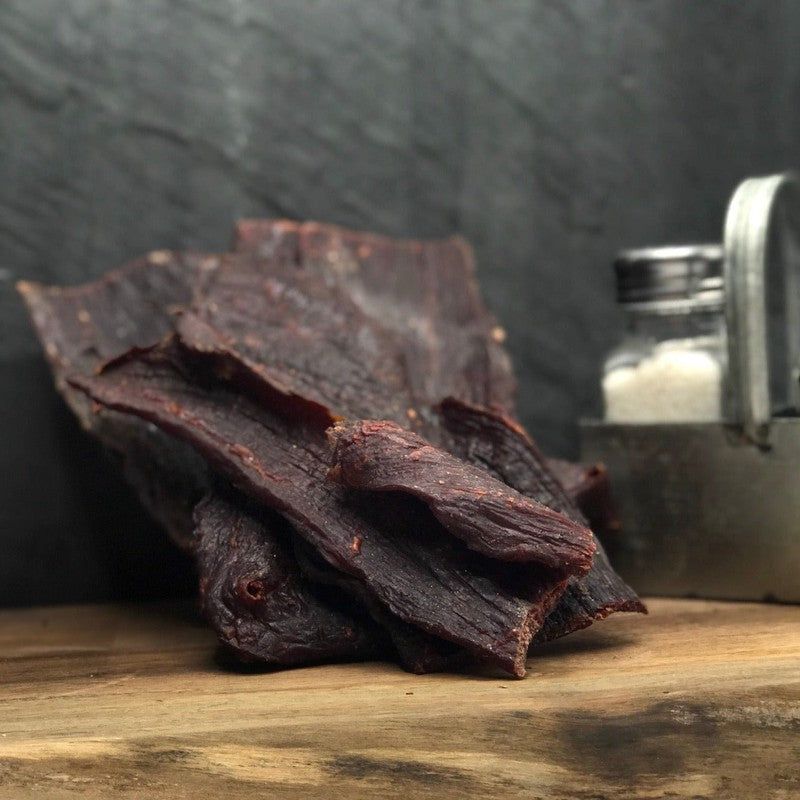
Jerky was the quintessential cowboy snack, a testament to the ingenuity of preservation. Made from beef or buffalo, it was dried and salted to withstand the test of time and travel.
Lightweight and portable, jerky was a convenient source of energy during long cattle drives, providing a quick protein boost. It became a favorite trail companion, fitting easily into saddlebags.
For cowhands, jerky wasn’t just food; it was a lifeline, offering a taste of the ranch, even miles away from home. The smoky, chewy texture brought a sense of familiarity and comfort.
5. Coffee
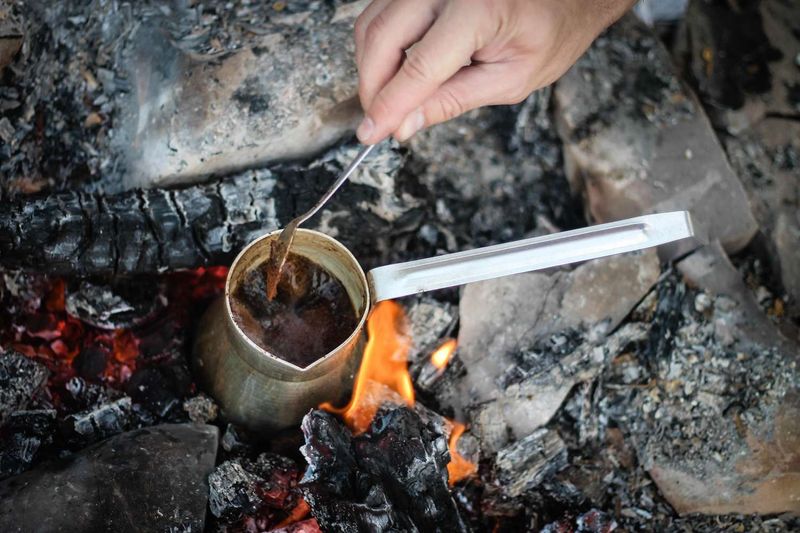
Coffee was the elixir that fueled cowboy life, an essential component of every trail morning. Brewed strong and black in a tin pot over flickering campfires, its aroma was a wake-up call for weary cowhands.
Consumed throughout the day, coffee provided warmth and wakefulness, becoming a comforting ritual. The process of making coffee was as much a part of camp life as riding horses.
For cowboys, coffee wasn’t just a drink; it was a symbol of camaraderie and endurance, a shared experience that connected them in the solitude of the open range.
6. Dried Fruit (When Available)
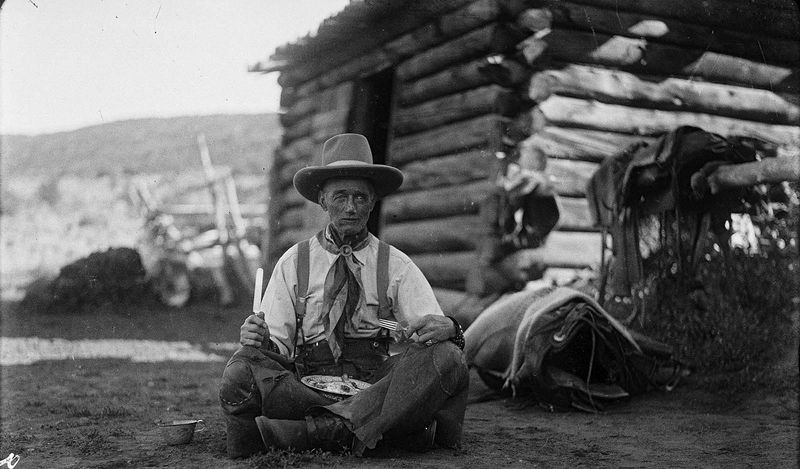
Dried fruit offered a sweet reprieve on the dusty trail, a practical indulgence amid the simplicity of cowboy cuisine. Apples, apricots, or peaches were dried for easy storage and long-lasting freshness.
These fruits could be rehydrated into stews or eaten as is, providing a rare burst of sweetness. For cowboys, dried fruit was a cherished find, a burst of flavor that broke the monotony of savory meals.
It was a treat that celebrated the simple joys of life, bringing a sense of delight and nostalgia to the rugged days on the range.
7. Hardtack or Crackers
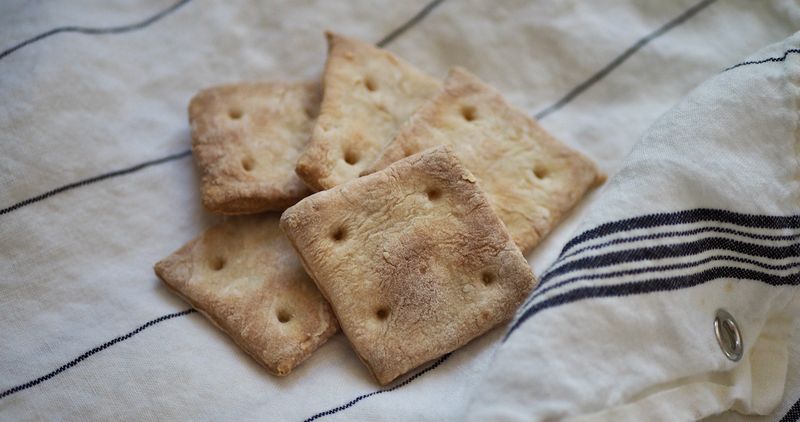
Hardtack, the indestructible biscuit, was a cowboy’s go-to starch. This long-lasting provision was tough enough to withstand any journey without spoiling, albeit at the risk of chipping a tooth.
Soaked in coffee or stew, it became a more edible component of meals. Hardtack was a testament to the practicality and resourcefulness necessary on the open range.
For cowboys, it was a small sacrifice for sustenance, a piece of the old world carried into the new frontier. Its durability and simplicity were emblematic of the cowhand’s life, where every crumb counted.
